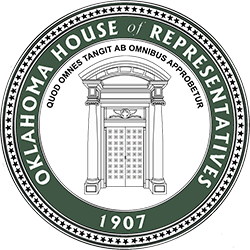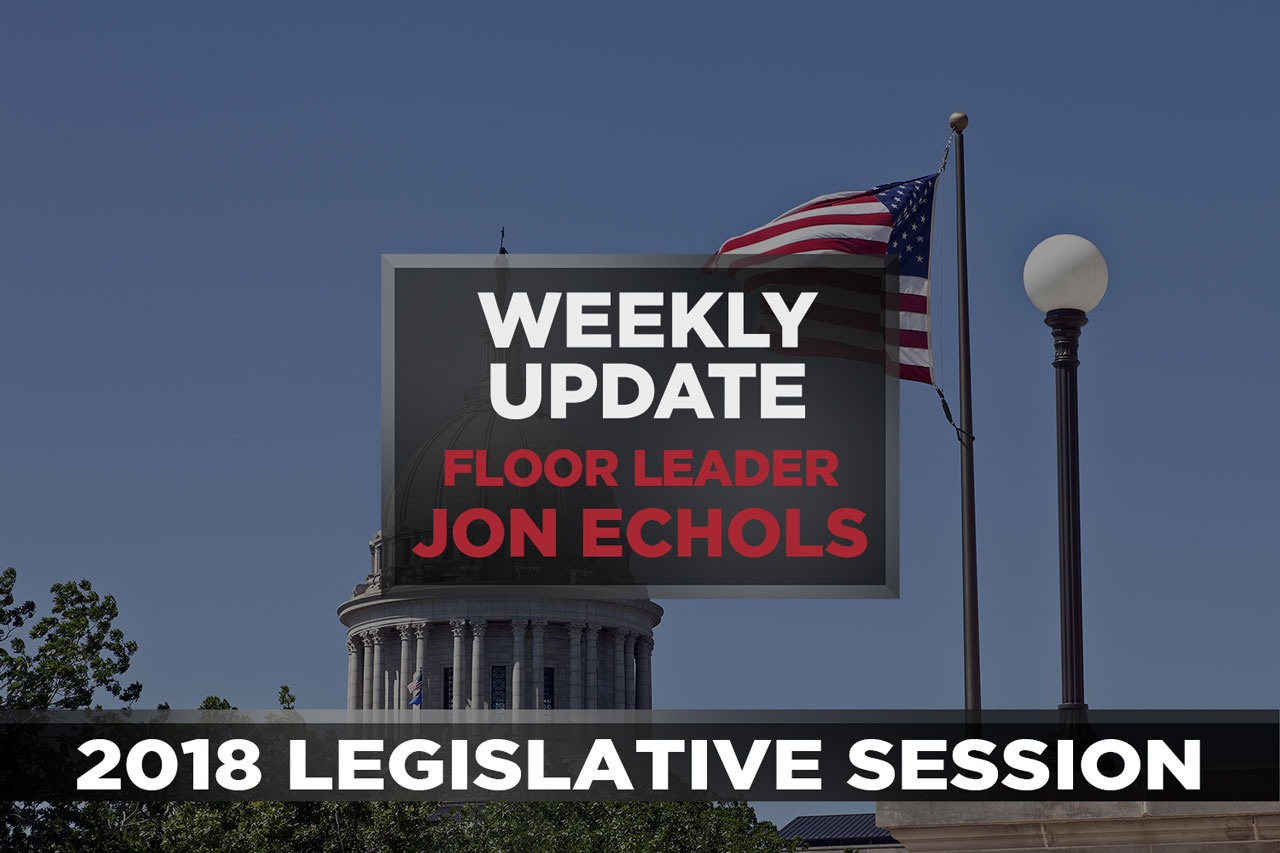 House Approves School Board Election Reform Legislation
House Approves School Board Election Reform Legislation
On Monday, school board election reform legislation was approved by the Oklahoma House of Representatives.
House Bill 1275 pairs up election dates for school boards and municipalities with the intent of reducing election costs and encouraging greater voter participation.
The legislation was approved by a vote of 63-30 and now heads to the Oklahoma Senate for consideration.
House Budget Subcommittee Approves Medical Research Bill
On Monday, a measure to utilize Oklahoma’s Tobacco Settlement Fund to pioneer new research in the fight against cancer was approved by the Oklahoma House Appropriations and Budget Health Subcommittee.
House Bill 1732 allows higher education institutions to use 2 percent of the annual earnings from the trust fund to pay for endowed chairs related to the research, treatment and prevention of cancer and other tobacco-related diseases. The legislation was approved by a vote of 7-2 and now goes to the full budget committee for consideration.
House Approves Bill to Allow Wiretapping in Human Trafficking Cases
On Tuesday, the Oklahoma House of Representatives voted unanimously in support of legislation that would help law enforcement catch human traffickers.
House Bill 1006 authorizes the use of wiretaps to investigate human trafficking for labor or commercial sex, the pandering of humans for sex and for the investigation of the prostitution of a child.
The legislation was approved by a vote of 91-0 and now heads to the Oklahoma Senate for consideration.
House Approves Jobs Measure
On Tuesday, an employment insurance bill was approved by the Oklahoma House of Representatives.
House Bill 1001 allows employers to file documentation for misconduct immediately upon the termination of the employee. In doing this, the employer will be considered to have automatically protested the claim, if and when the former employee files for unemployment insurance benefits.
The legislation would also provide a reliable unemployment insurance tax rate for new businesses in their first two years in operation.
The legislation was approved by a 93-4 vote and now heads to the Oklahoma Senate for consideration.
Committee Approves Measures to Evaluate Tax Credits, Boost Economy
On Wednesday, the House Appropriations and Budget Committee approved measures that will create a fair and balanced system to evaluate tax credits and their impact on economic growth.
Currently, the State of Oklahoma pays out roughly $1.7 billion in tax credits. While tax credits are an essential part of creating a pro-business environment, there are no methods in place at this time to determine if a credit is spurring economic growth or simply keeping industries alive that would otherwise fail on their own. House Bill 2182 creates the Incentive Evaluation Commission that will review current and future tax credits, report on their level of success and make recommendations on future policy. The Incentive Evaluation Commission will ensure each tax credit is evaluated every four years by an independent auditor and scored on criteria specific to its purpose.
In addition to HB 2182, the House Appropriations and Budget Committee also voted in favor of Speaker Hickman’s House Bill 2183 which ensures that tax credits introduced in the future will state a clear economic goal. This will allow the Legislature and the Incentive Evaluation Commission to have a more transparent means to evaluate the merits of a proposed credit.
HB 2182 and 2183 will now go to the House floor for consideration.
House Approves Bill to Streamline Criminal Justice
On Thursday, legislation approved unanimously by the Oklahoma House of Representatives would improve information sharing between state criminal justice agencies.
House Bill 1083 would create a shared infrastructure dubbed the “Criminal Justice Information Center for Excellence” under the supervision of the chief information officer in the Oklahoma Office of Management and Enterprise Services. The information technology infrastructure would be used by 14 agencies, including the Oklahoma State Bureau of Investigation, the Department of Public Safety, the Oklahoma Bureau of Narcotics and Dangerous Drugs, the District Attorney’s Council, CLEET, the state attorney general, the ABLE Commission, the fire marshal and the Department of Corrections.
The chief information officer and commissioner of public safety would oversee the implementation of the law, if enacted.
The legislation was approved unanimously, 87-0, and now proceeds to the Senate for consideration.

